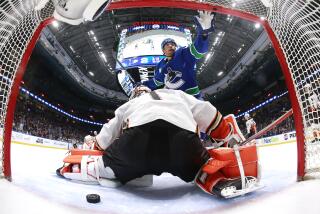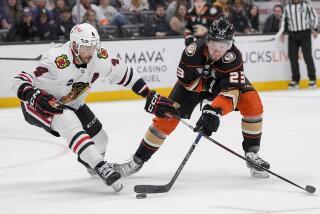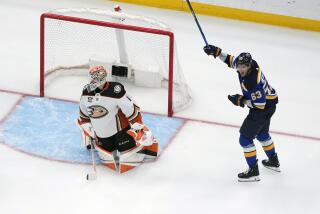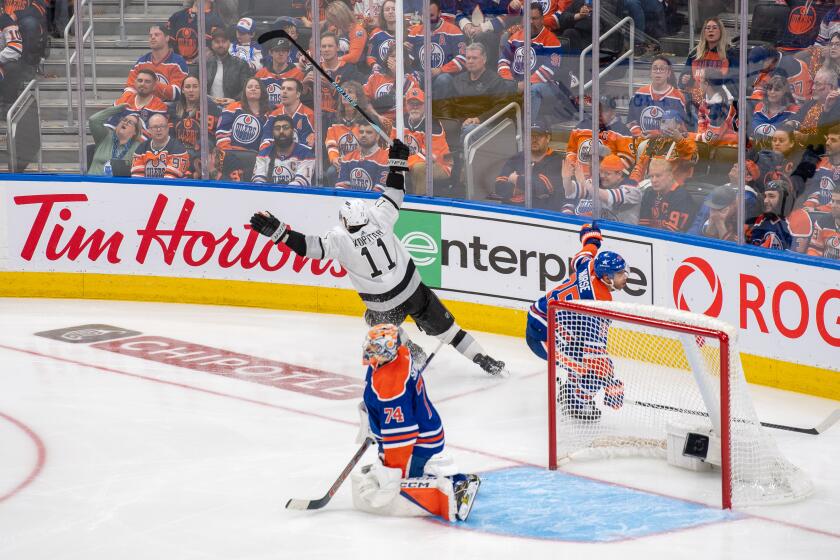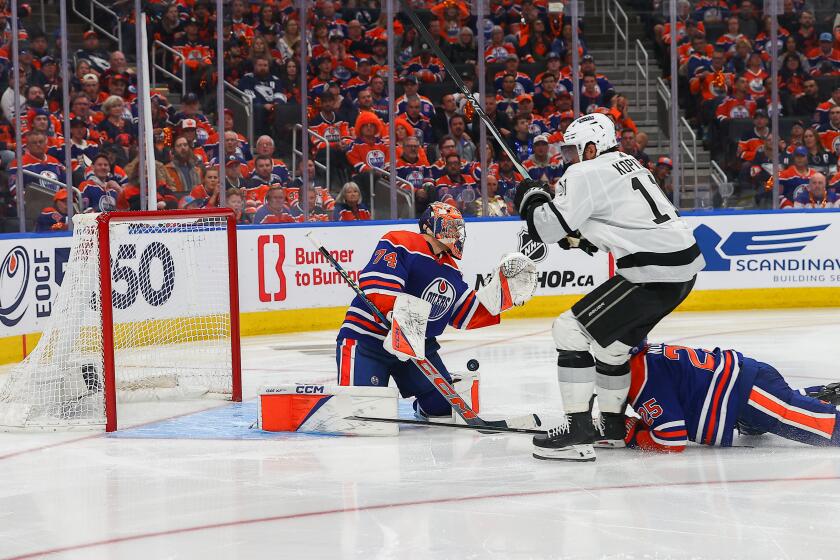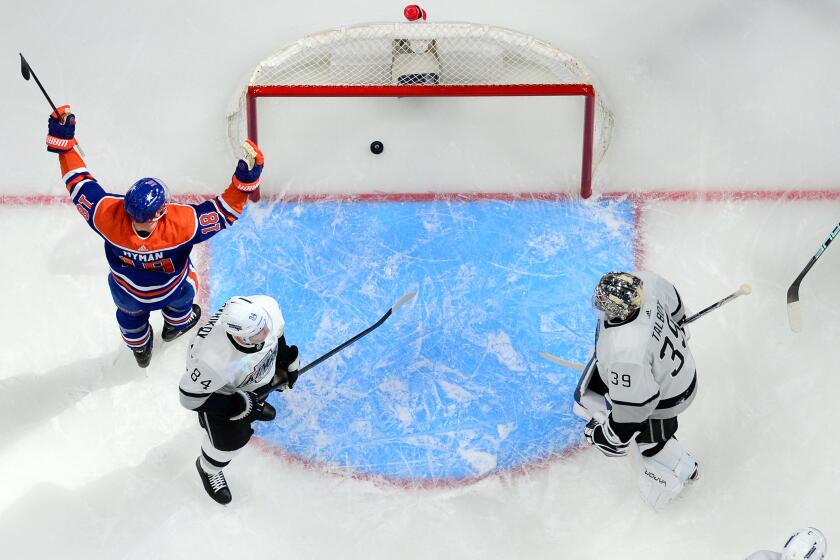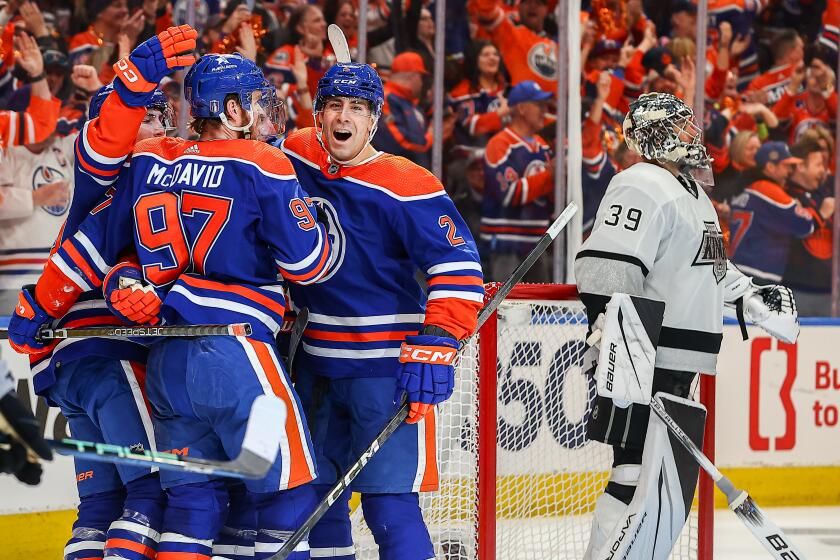Chicago’s Joel Quenneville makes questionable changes for Game 3
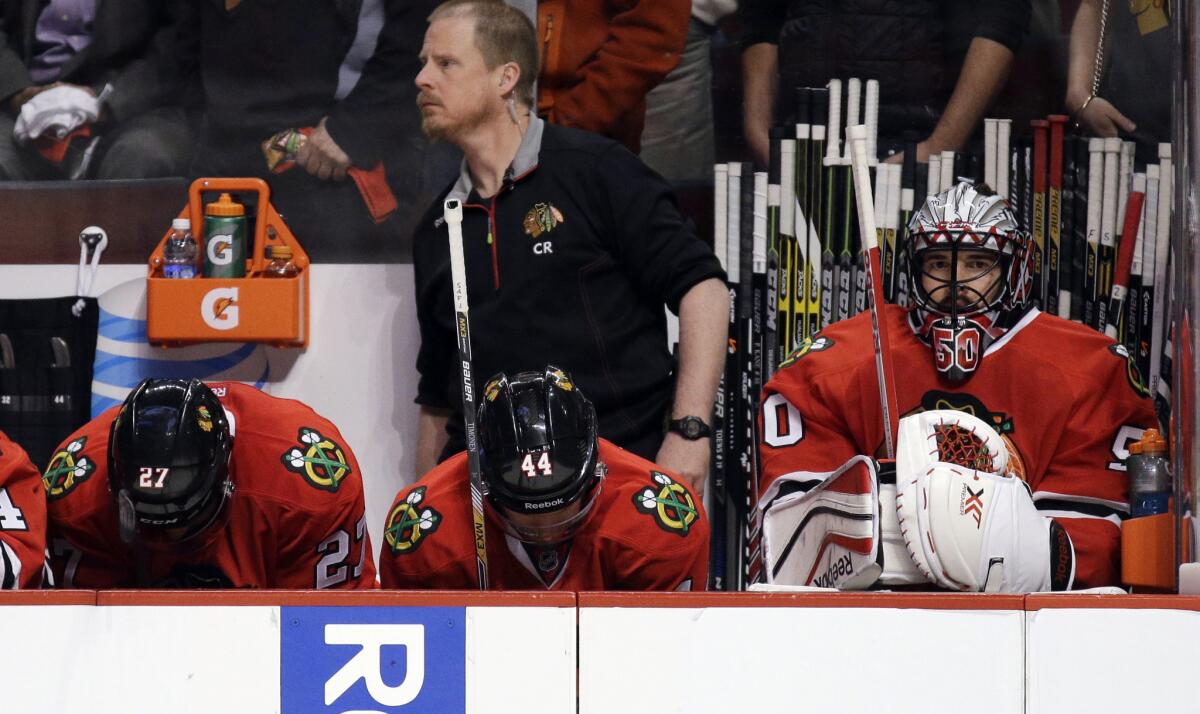
Any chance that momentum made the trip home from California with the Blackhawks disappeared Thursday night when Coach Joel Quenneville tried to fix what wasn’t broken.
Perhaps other technical explanations exist for why the Ducks beat the Blackhawks, 2-1, in Game 3 of the Western Conference finals, but this one lingered in barrooms and living rooms all over Chicago: Quenneville played the wrong hunch.
You still can believe Coach Q has all the answers and question his decisions — especially ones this unusual and unexpected with the stakes so high.
In the first two games of the series, no Blackhawks line produced more than the fourth unit of Marcus Kruger, Andrew Shaw and Andrew Desjardins — the group on the ice for Kruger’s triple-overtime winner in Game 2. Clearly, Quenneville isn’t the sentimental type. He tinkered, again.
“We trust Q to mix and match players and lines,” winger Patrick Sharp said.
Yes, Quenneville has earned that trust, yet he deserves the second-guessing he invited. The Blackhawks didn’t lose solely because of the changes, but they didn’t help.
Quenneville shifted Shaw to center the third line, replacing Antoine Vermette, who along with Teuvo Teravainen was a surprising scratch. As dangerous as Teravainen has been, the Ducks probably were as relieved as you were confused.
Discounting injury, Quenneville turned to forwards Kris Versteeg and Joakim Nordstrom because they didn’t play 116 minutes of hockey 48 hours earlier.
“We just wanted to get fresh legs in there,” said Quenneville, who typically goes with the status quo after wins. “We could have changed our lineup after the first game. That’s what we’re looking at.”
What the Blackhawks saw was one move weakening two positions — Shaw affects games more at wing than center. Offensively, Chicago missed the creativity of Teravainen and Vermette.
Versteeg, inactive since April 25, admitted it took a while to adapt, and “the first two shifts it was like I was standing in a speedway.” Nordstrom, out for 34 days, was out of position on the Ducks’ game-winner. Overall, something was missing.
Not even Patrick Kane getting back on track could shake the Blackhawks out of their slumber.
With 57 seconds left in the first period, Kane collected a loose puck between the circles, gathered himself and unleashed a no-look backhander past goalie Frederik Andersen. It provided a rare Blackhawks highlight in a listless game. On a four-minute power play, they managed only one shot on goal. When a fan yelled, “Shoot the puck!” he spoke for Blackhawks fans everywhere.
Meanwhile, the Ducks struck first on a power-play goal as Patrick Maroon redirected a Hampus Lindholm shot. The dagger came with 55 seconds left in the second period when defenseman Simon Despres took advantage of open ice and scored on a one-timer from an odd angle that Corey Crawford will want back.
“This was a character win,” Ducks Coach Bruce Boudreau said.
If Game 2 kept people up too late, at times this one threatened to put people to sleep. For a while, nothing on the ice raised an eyebrow higher than what NHL Commissioner Gary Bettman said in the press box.
In a stunningly irresponsible comment for the commissioner of a contact sport to make in 2015, Bettman challenged the link between concussions and chronic traumatic encephalopathy (CTE).
“From a medical and science standpoint, there is no evidence yet that one necessarily leads to the other,” Bettman said.
It’s amazing Bettman could be heard speaking, what with his head in the sand. Even if Bettman was doing nothing more than publicly laying groundwork for an NHL legal defense, to claim with such authority that concussions might have no connection to CTE defied logic. Even if Bettman can find scientists to support his claim, dismissing CTE as a potential result of multiple concussions hardly reflects a man paid well to protect the game.
More to Read
Go beyond the scoreboard
Get the latest on L.A.'s teams in the daily Sports Report newsletter.
You may occasionally receive promotional content from the Los Angeles Times.
